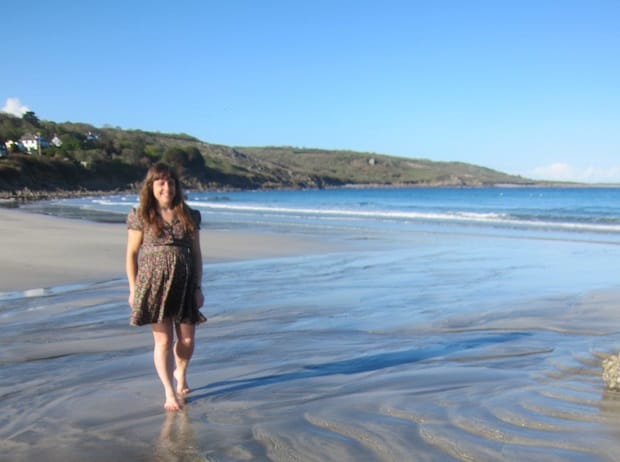
Parents who suffered the avoidable death of their of baby daughter at QEQM Hospital, Margate, in 2014 are among those calling for action following the publication of an independent report into maternity failings at QEQM and William Harvey Hospitals which has found 45 baby deaths could have been avoided.
Couple Dr Helen Gittos and Andy Hudson suffered the loss of their baby daughter Harriet in 2014 and say her death was wholly avoidable.
They are now calling for measures including a meeting with the East Kent Hospitals Trust chief executive to work on making prompt changes to maternity services which will be in place for the long-term.
NHS England and NHS Improvement commissioned Dr Bill Kirkup to carry out an independent review into the circumstances of the maternity deaths at the East Kent Hospitals Trust sites in February 2020 in response to a concerning number of avoidable baby deaths.
Issues with maternity were brought into the spotlight following the death of baby Harry Richford at Margate’s QEQM Hospital in 2017 after a series of errors.
The coroner ruled that Harry’s death had been avoidable. The inquest during January 2020 had heard of the “panic” after Harry was born by emergency Caesarean section during which his heartbeat kept dropping. Harry died seven days after his delivery from a condition caused by a lack of oxygen. An independent report said he might have survived had there not been a delay in resuscitation at his birth that caused irreversible brain damage.
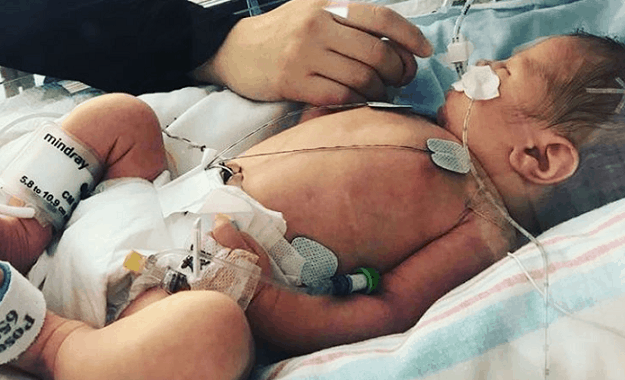
Last year East Kent Hospitals Trust was fined a total of £761,170 – inclusive of costs – for failing to discharge its duty to provide safe care and treatment, resulting in avoidable harm with the death of seven day old Harry Richford and sub standard care of his mum Sarah at QEQM Hospital in 2017.
The hospital trust had previously said Harry’s death was expected, resulting in his parents, Tom and Sarah, having to fight for an inquest and a campaign for justice launched and led by grandfather Derek Richford.
Since Harry’s inquest some 200 families have come forward to the Kirkup review over the preventable deaths of their babies.
‘We were treated dismissively’
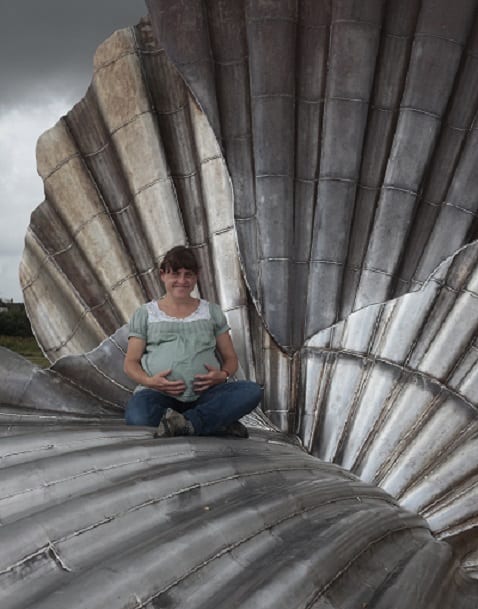
Helen Gittos and Andy Hudson say they were “treated dismissively, contemptuously and without a desire for understanding” throughout pregnancy, labour and then the tragic death of baby Harriet.
Harriet was born on August 3, 2014, at QEQM and died just days later on August 11. Her case was one of those reviewed in a Royal College of Obstetricians and Gynaecologists review of the service in 2015. Harriet was a full term baby and healthy but died after sustaining a brain injury during her birth.
The couple say they want the Trust to put restorative measures in place and for Trust chief executive Tracey Fletcher to meet them and commit to work with families involved in the investigation to help ensure change is long-lived.
The couple also praised the Richford family whose tenacity prompted the investigation to be held.
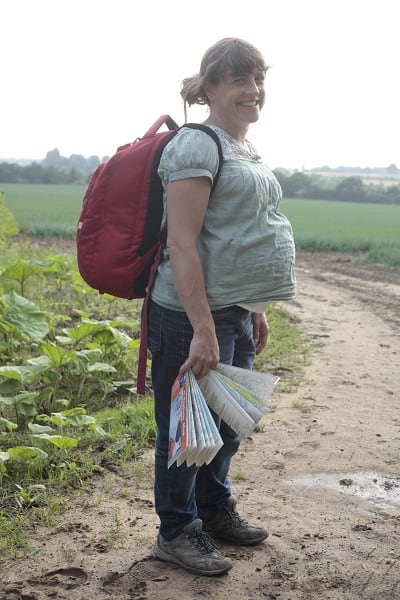
In a statement the pair said: “Harriet Gittos, our full-term, healthy daughter, died avoidably in 2014.
“Too often during pregnancy, in labour and afterwards, rather than being listened to, we were treated dismissively, contemptuously and without a desire for understanding.
“These are not the conditions in which good care can happen or good learning take place. This, we think, is at the heart of what has been going wrong in maternity services at East Kent.
“It is hard enough to come to terms with the death of a child; it is even harder, when you are implicitly blamed for what happened. We call for urgent conversations in medical schools and NHS staff rooms about why mothers in particular are so often blamed when things go wrong in the care of their children.
“This investigation happened because of the courage, tenacity and refusal to be fobbed-off of the Richford family. We are especially grateful to Sarah and Tom for the sacrifices they have made.
“Three specific things would help us now:
- Families. We ask the Trust to put into place restorative practices. Some of us would welcome the chance to talk to those healthcare professionals involved in our care who would be willing to take part in such conversations in good faith.
- Trust. We ask Tracey Fletcher, Chief Executive of the Trust, to meet us and commit to work with families involved in the investigation to help ensure change is long-lived. We don’t want apologies or assurances about lessons learned; we want the recommendations of the Inquiry to be promptly enacted.
- Nationally. We call for changes to ensure accountability. We all make mistakes; doctors and midwives shouldn’t be punished for errors. But clinicians with managerial responsibility should be accountable for the decisions they take.
“Women’s’ voices are so often not listened to; we hope this report will help change that.”
The report
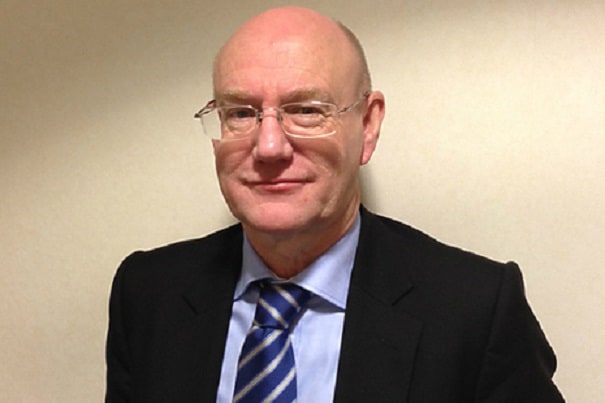
In the report, published today (October 19) Dr Kirkup says: “The Panel investigating East Kent maternity services heard the harrowing accounts of far too many families. If it was hard for us to listen to, we could not imagine how much harder it was for those families to relive, although the effects on those who were giving us their accounts were often all too clear.
“The primary reason for this Report is to set out the truth of what happened, for their sake, and so that maternity services in East Kent can begin to meet the standards expected nationally, for the sake of those to come.
“But this alone is not enough. It is too late to pretend that this is just another one-off, isolated failure, a freak event that “will never happen again”. Since the report of the Morecambe Bay Investigation in 2015, maternity services have been the subject of more significant policy initiatives than any other service.
“Yet, since then, there have been major service failures in Shrewsbury and Telford, in East Kent, and (it seems) in Nottingham. If we do not begin to tackle this differently, there will be more.”
The report says that between 2009-2020, the timeframe under review, that: “those responsible for the services too often provided clinical care that was suboptimal and led to significant harm, failed to listen to the families involved, and acted in ways which made the experience of families unacceptably and distressingly poor.”
45 avoidable baby deaths
The Panel found that had care been given to the nationally recognised standards, the outcome could have been different in 97, or 48%, of the 202 cases assessed by the Panel, and the outcome could have been different in 45 of the 65 baby deaths, or 69% of these cases.
Failures
Failures in compassion, teamwork and safety are highlighted in the report as well as the failure of the Trust to respond appropriately.
The report says: “In specific instances where things have gone wrong, the Trust has found it easier to attribute the causes to individual clinical error, usually on the part of more junior staff, or to difficulties with locum medical staff.
“But we have found that these are symptoms of the problems, not the root causes. This has been combined with the disposition to minimise problems, so it is unsurprising that the Trust has given the appearance of covering up the scale and systematic nature of those problems.”
Bullying
The Panel found a catalogue of missed opportunities and say “bullying and harassment have been prevalent features in the Trust’s maternity services over a prolonged period, as reported by many staff with whom we spoke.
“Staff surveys confirmed that staff felt disengaged, and reports of bullying and harassment were numerous. Some interviewees were explicit that the effects of this behaviour put the safety of care at risk.”
The Panel found gross failures of teamworking across the Trust’s maternity services, saying: “There has been a series of problems between the midwives, obstetricians, paediatricians and other professionals involved in maternity and neonatal services in East Kent. Some staff have acted as if they were responsible for separate fiefdoms, cultivating a culture of tribalism.
“We have found divisions among the midwives which at times included bullying to such an extent that the maternity services were not safe. We also found that some obstetric consultants expected junior staff and locum doctors to manage clinical problems themselves, discouraged escalation, and on occasion refused to attend out of hours. This, too, put patient safety at significant risk.
“We have found that midwives and obstetricians did not always share common goals, and that this damaged the safety of patient care. One mother, who asked a paediatrician why her baby had died, was told that “if you want to look for blame, you should be looking at the obstetricians not me”.
“It seems to us that the Trust was disposed to replace staff in key managerial roles who identified and challenged poor behaviour. The staff who remained were those who either personified the poor culture or were prepared to live with it rather than question it.”
Baby Harry Richford

The death of baby Harry Richford and failings in that care are highlighted in the report. The report states: “Baby Harry’s family faced great difficulty in finding out what had gone wrong, although they were sure that something had, and they began to distrust any information they received from the Trust.
“The weeks, months and years that followed baby Harry’s death involved sustained efforts by his family to seek understanding and truth about what had happened during his delivery. Their efforts included referring the case to HSIB and to the CQC for investigation and pressing to have a full inquest into the circumstances of his death.
“This pattern of behaviour by the Trust, clearly evident in this case, recurred in many others that we examined. It included denying that anything had gone amiss, minimising adverse features, finding reasons to treat deaths and other catastrophic outcomes as expected, and omitting key details in accounts given to families as well as to official bodies.
“Although we did not find evidence that there was a conscious conspiracy, the effect of these behaviours was to cover up the truth.
“Even had none of the previous failings been known – and they were – baby Harry’s death should surely have been a catalyst for immediate change.
“In fact, it required public remonstration by a coroner over two years later, precipitated by the persistence, diligence and courage of baby Harry’s family, to reveal an organisation that did not accept its own failings, considered itself above scrutiny or accountability, and consistently rejected the opportunity to learn when things went wrong.”
The Panel have outlined a number of actions that need to be taken.
Actions
Recommendation 1 –The prompt establishment of a Task Force with appropriate membership to drive the introduction of valid maternity and neonatal outcome measures capable of differentiating signals among noise to display significant trends and outliers, for mandatory national use.
Recommendation 2 –Those responsible for undergraduate, postgraduate and continuing clinical education be commissioned to report on how compassionate care can best be embedded into practice and sustained through lifelong learning.
Relevant bodies, including Royal Colleges, professional regulators and employers, be commissioned to report on how the oversight and direction of clinicians can be improved, with nationally agreed standards of professional behaviour and appropriate sanctions for non-compliance.
Recommendation 3 – Relevant bodies, including the Royal College of Obstetricians and Gynaecologists, the Royal College of Midwives and the Royal College of Paediatrics and Child Health, be charged with reporting on how teamworking in maternity and neonatal care can be improved, with particular reference to establishing common purpose, objectives and training from the outset.
Relevant bodies, including Health Education England, Royal Colleges and employers, be commissioned to report on the employment and training of junior doctors to improve support, teamworking and development.
Recommendation 4 – The Government reconsider bringing forward a bill placing a duty on public bodies not to deny, deflect and conceal information from families and other bodies.
Trusts be required to review their approach to reputation management and to ensuring there is proper representation of maternity care on their boards.
NHSE reconsider its approach to poorly performing trusts, with particular reference to leadership.
Recommendation 5 –The East Kent Hospitals Trust accept the reality of these findings; acknowledge in full the unnecessary harm that has been caused; and embark on a restorative process addressing the problems identified, in partnership with families, publicly and with external input.
‘Apologise unreservedly’

East Kent Hospitals Trust chief executive, Tracey Fletcher said: “I want to say sorry and apologise unreservedly for the harm and suffering that has been experienced by the women and babies who were within our care, together with their families, as described in today’s report.
“These families came to us expecting that we would care for them safely, and we failed them.
“We must now learn from and act on this report; for those who have taken part in the investigation, for those who we will care for in the future, and for our local communities. I know that everyone at the Trust is committed to doing that.
“In the last few years we have worked hard to improve our services and have invested to increase the numbers of midwives and doctors, in staff training, and in listening to and acting on feedback from the people who receive our care.
“While we have made progress, we know there is more for us to do and we absolutely accept that. Now that we have received the report, we will read it in full and the Board will use its recommendations to continue to make improvements so that we are providing the safe, high-quality care our patients expect and deserve.
“I want every family – whether they contributed to the investigation or not – to know I am here to listen to them, to learn and to lead our Trust in acting on this report.
“I would like to thank Dr Bill Kirkup and the investigation team for their work. Today, our thoughts remain with those who have shared their experiences. We are grateful to them.”
‘Improvements without delay’
Specialist medical negligence lawyers at Irwin Mitchell representing families affected by maternity failings in East Kent are calling for improvements identified in the report to be implemented without delay.
Irwin Mitchell represents a number of families who have been affected by the maternity failings at East Kent as well as other NHS trusts across the country. The law firm is campaigning to improve maternity services across the country and has also contributed to the recent Health Committee’s Maternity Safety Call for Evidence.
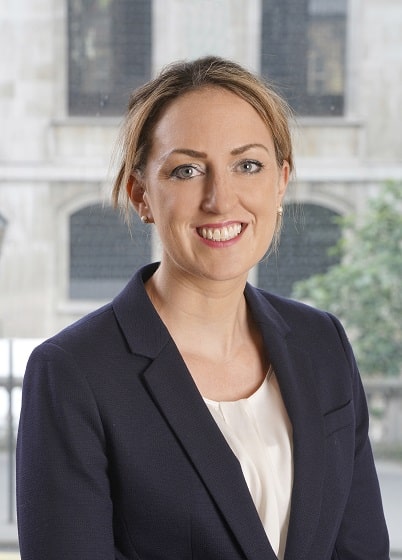
Anita Jewitt (pictured), a specialist medical negligence lawyer at Irwin Mitchell said: “The full findings of this report make for stark and harrowing reading. This should have been a joyous time for these families and instead, the report lays bare how families were badly let down, with devastating consequences.
“The numbers contained in the report aren’t just statistics. Behind each case is a human story of how families have been shattered by medical errors. Many of these avoidable mistakes have led to the deaths of babies or incredibly serious birth injuries, which have left people severely disabled and needing a lifetime of specialist care.
“That there was a lack of teamwork between medics and a failure of professionalism which saw women treated rudely and without being listened to is concerning. However, what’s particular worrying is that the report found that the Trust failed to act on clear warning signs over a number of years and didn’t acknowledge problems but instead was concerned about reputation management.”
Anita Jewitt said today was another ‘dark’ day for maternity safety and the families affected, adding: “While nothing can make up for what the families have gone through, today needs to be a day which helps lead to decisive and lasting change.
“Too often in the past we’ve seen reviews and investigations into hospital care make recommendations which have taken years to implement, if at all. Many problems have also only been identified after families have taken legal action.
“Transparency is key to upholding public confidence in the health service and where things do go wrong ensuring lessons are learned to improve patient safety for others.
“While sadly it’s too late for the hundreds of people whose lives have been shattered, it’s now time that meaningful action is taken to finally address issues in maternity care.”
The firm says it will continue to campaign for improvements in maternity care.
‘I expect the Government to respond swiftly and positively to the recommendations’
North Thanet MP Sir Roger Gale, who supported the Richford family during their fight against the Trust, says investment must now be made in East Kent Hospitals.
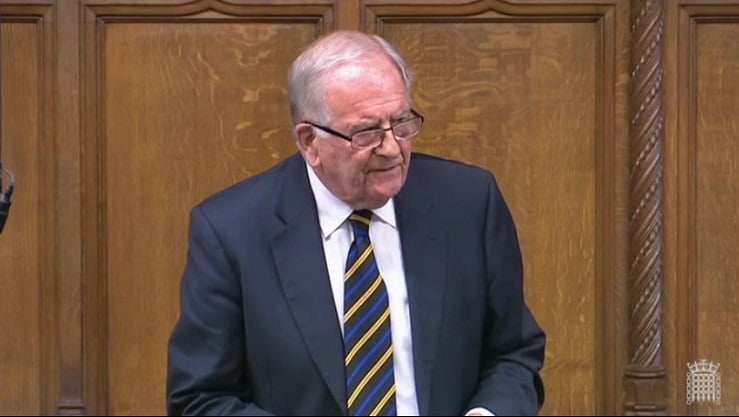
He said: “First, I would like to thank Dr Bill Kirkup and his team for the patience and sensitivity with which he has taken evidence from families who have lost children as the result of the historic failings in the maternity services in the QEQM hospital, Margate, and for the dedicated approach that he has taken in generating his vital report.
“Having been involved in the matter from the time when these concerns and failings first came to light and having been instrumental in instigating the independent inquiry I hope that those who parents and families who have suffered will feel that while nothing will ever eradicate their losses at the very least Dr. Kirkup has fairly and thoroughly exposed on their behalf what has gone wrong in the past and what further measures need to be taken to ensure that no families will in the future ever have to endure such painful and devastating experiences.
“I am pleased that the Hospital Trust has agreed to accept the findings of the report and that, while many improvements have already been made the additional actions necessary to address continuing concerns and criticisms that have been exposed.
“The Trust`s new Chairman, Niall Dickson, and the new Chief Executive, Tracey Fletcher, with whom I have of course discussed these matters, are determined to pursue the necessary changes in custom and practice to ensure that confidence in the maternity services at Margate are fully restored and that the clinical care is entirely fit for purpose and I appreciate the candour with which they have responded to my own concerns.
“There have been, I believe, serious failings in middle-management that remain to be resolved and there has been a lack of honesty and transparency that has been wholly unacceptable and has exacerbated the suffering of parents. That has to change.
“I am also very concerned for the morale and wellbeing of a nursing and midwifery staff who have been exposed to unwarranted criticism and who are caring, determined and dedicated to their work. They have I believe, in the past, lacked the leadership and support, clinically and managerially, that their own professionalism has required and deserved.
“Additionally, I have written to both the previous Secretary of State and Therese Coffey, the current Secretary of State, in support of the Trust`s request for the funding necessary to implement the structural changes to the estate necessary to allow the staff to work in an appropriate environment. Three of my own grandchildren were born in the QEQM and as a regular visitor to the hospital I am acutely aware of the difficulties faced by staff working under confined and sometimes difficult conditions.
“While it would be quite wrong to seek to place the blame for past failings on the buildings this modernisation is an investment in the future services that has to be made and I expect the Government to respond swiftly and positively to the recommendations of the Kirkup report and to my own further requests for further intervention and support.”
‘Worrying circumstances’
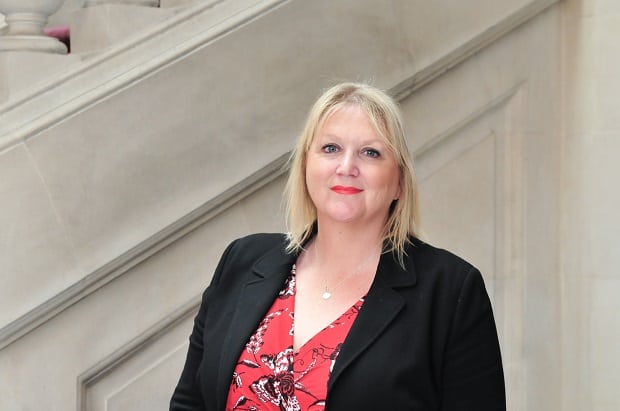
County Councillor Karen Constantine, who sits on the authority’s health scrutiny panel, said action must be taken to provide a completely safe maternity service.
She said: “My heart goes out to all those that have been affected by this. I am always available as a listening ear and will do what I can to support Thanet residents.
“The most important issue now, is to do whatever is necessary to ensure mothers and their babies are provided with a 100% safe service, throughout pregnancy, birth and after. Nothing less will do.
“Communities across East Kent cannot let any further degradation of our health services to take place. We must demand better. Pregnant women, new mothers and babies are amongst the most vulnerable who attend our hospitals. Whilst many do have their expectations met, and enjoy a positive experience, some sadly, as this report makes abundantly clear, do not.
“Even since this investigation, with the improvements now in place, the new structures and the additional staff now employed, I have been informed of very worrying circumstances recently where the health of one newborn was compromised due to staff shortages. That’s absolutely not good enough. Not only is that an unimaginable pressure on parents, but staff and managers also suffer. Poor maternity services and baby loss have a tremendously long lasting impact.”
Cllr Constantine says the Trust, MPs and KCC have been aware of issues since 2014 when the trust was put into special measures by the CQC. She says an inspection in 2020 should have seen the “huge deficiencies.”
She is calling for a public inquiry, something she requested in 2020, and asking Thanet MPs to lobby the current Conservatives Chancellor, Jeremy Hunt MP, to reinstate the bursary for midwifery, which he cut in 2014 when he was the Health Secretary.
She added: “That single act has resulted, eight years on, in chronic staffing shortages. It needs to be reversed as a matter of urgency and to ensure midwifery is safe. Without sufficient, trained, competent midwives a safe maternity service is impossible. The Government also need to resume responsibility for workforce planning.
“The Royal College of Midwives says there is now a shortage of more than 2,000 midwives in England. To add to the difficulties the midwifery course run by the nearby Canterbury Christ Church University was recently closed due to the fact that it failed to gain accreditation from its regulator, because student midwifes were being left unsupervised while working at the trust.
“This what happens when the Government strip out the NHS, fail to deal with workforce issues and neglect the pay and morale of vital NHS workers.”
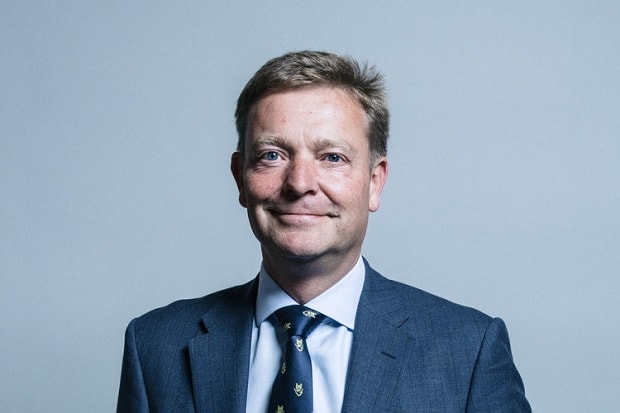
South Thanet MP Craig Mackinlay said the dedication of the Richford family had been instrumental in the investigation being launched.
He said: “This is a hard hitting and critical report.
“Whilst I know improvements have already been made by East Kent Hospitals, there is still much work to do to ensure the provision of safe, high-quality care that patients rightly expect, which is why I welcome the Trust’s commitment to use the Report’s recommendations to continue to make further improvements.
“The Richford family have shown dedication and strength in making this Report happen. My thoughts go to the many families affected.”

